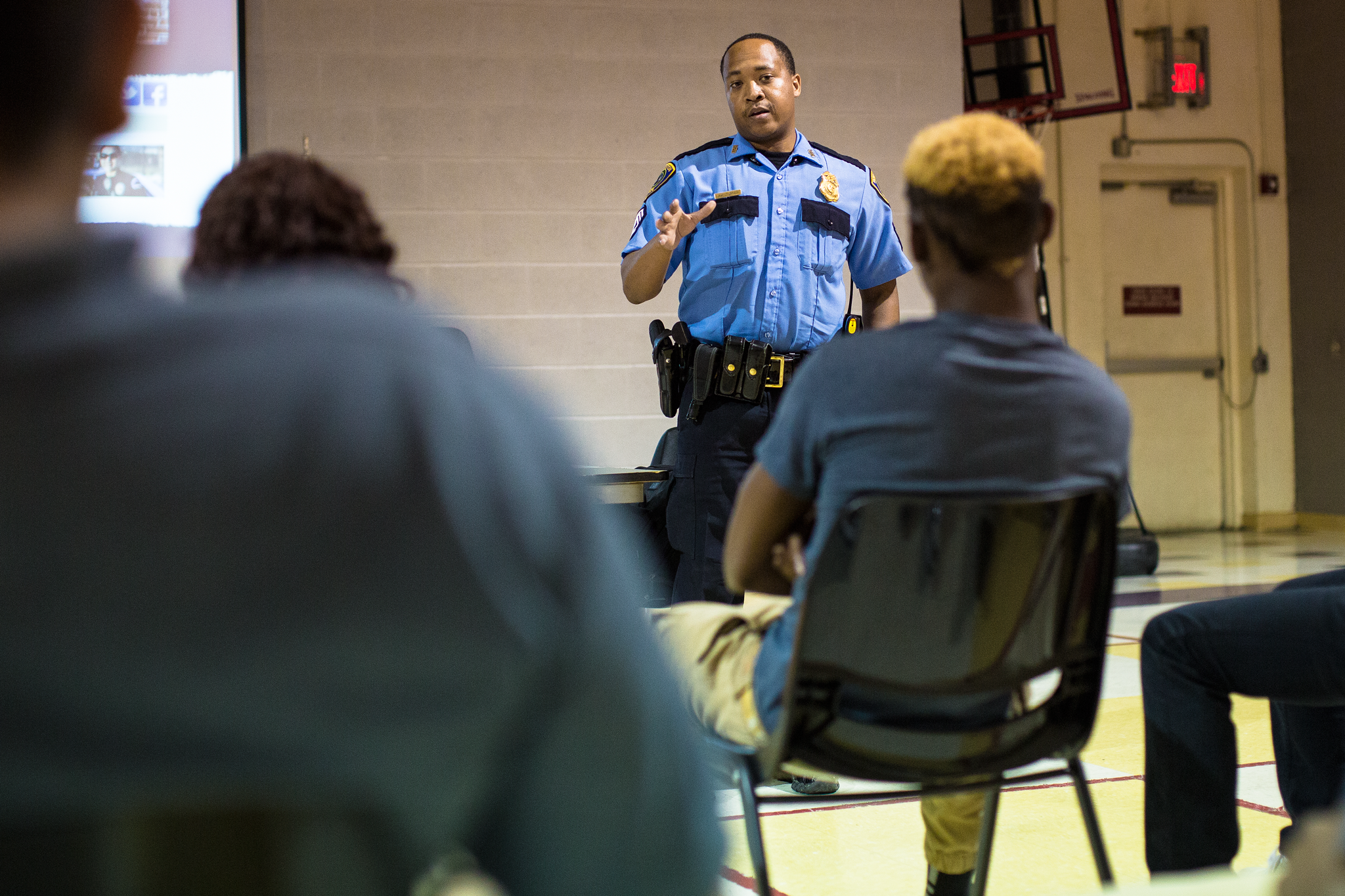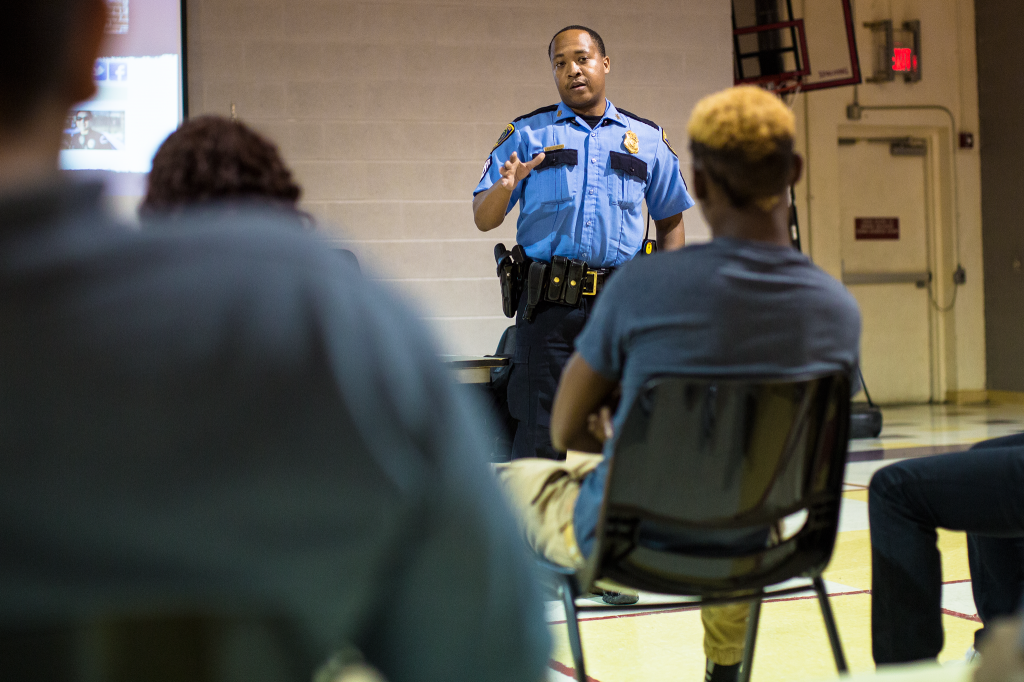
Houston academy working to change lives globally

As the fourth-largest city in the United States, Houston is home to more than two million people and countless daily crime reports.
To combat crime alongside Houston Police Department, UHCL Associate Professor of Criminology, Everett Penn developed the Teen and Police Service Academy (TAPS). The TAPS goal is to reduce social distance between law enforcement and at-risk teens.
“Youth, especially at-risk youth, specifically minority youth, have the greatest dislike and distrust for law enforcement,” Penn said. “When you think about that, what could we do? We could simply say, ‘that’s just the way it is and that’s just the function of life,’ or we could do something about it so that we can avoid situations like Ferguson in the future.”
The Ferguson situation Penn is referring to is the August riots that erupted in Ferguson, MO, after a police officer shot and killed unarmed teenager Michael Brown.
The TAPS staff has established an 11-week program wherein they join forces with HPD and enter disciplinary schools such as the Beechnut Academy and start bridging the gap between police officers and students through dialogue, discussion, and working to understand each other. Penn believes this work will aid in removing or reducing social distance.
“We make choices about people based on their outward group presentation, rather than their inside characteristics,” Penn said. “And I often tell people, just look what you do perhaps everyday when you see someone maybe come into a room, you make associations about them perhaps by their gender, their race, their height, their weight, their look, their presentation. Well, the same thing is done every single day, thousands of times a day, when police officers come in contact with teens and at-risk youth.”
Beechnut Academy Executive Director Cynthia Clayton explained that part of the TAPS Academy includes going over real-life scenarios that teens could face outside the school walls.
“You’ll hear them tell you, ‘they just went over this situations in TAPS and we had this situation at home,’ and they were able to deal with it,” Clayton said.
Students enrolled in disciplinary schools, such as Beechnut Academy, are often admitted for drug, gang, sexual or violence related offenses, or other behavioral problems. The TAPS students enrolled in Beechnut Academy are between the ages of 14 and 18.
“We have research that tells us that the brain does not fully form until about the age of 26, and that the last part of the brain that forms is that part that helps us to make rational decisions,” Penn said.
TAPS was funded by the U.S. Department of Justice, specifically the Community Oriented Police and Services (COPS) Office.
“Our research indicates that once students finish these 11 weeks of TAPS – in which they meet two hours a week and they go through a curriculum that exists in conflict mediation, bullying, drugs, gangs, driver safety, team building, a service learning project, which we focus in on gardening – that we find that these students are appreciating the police, are respecting the police, are liking the police,” Penn said. “They’re feeling more connected to the police – 30, 40, 50 percent higher than they did just 10 weeks before. In Tampa for example, there was a student that raised his hand on the first day and let the police officers know, ‘I don’t like you because you shot and killed my brother.’ There was a lot involved and the brother was involved in criminal activity. But that’s a major hurdle to overcome for a program.”
The TAPS staff and police officers become mentors for the students and have an impact on them beyond their current lifestyles.
“Now you have kids saying, ‘I want to be a police officer when I get out of school’ just because of the mentors that they get,” Clayton said.
The TAPS Academy was founded in Houston by Penn and HPD Assistant Chief Brian Lumpkin in 2012. In the nearly three years TAPS has been in operation it has expanded across Texas, throughout the nation, and is now making it’s way into other countries.
“We have now grown to several cities including Miami; Tampa; Galveston; El Paso; Columbus, Ohio; with Chicago in the future; and this fall we’re starting in the nation of Saint Kitts in the Caribbean and moving on to South Africa as early as this spring,” Penn said. “So I think what this shows us is, police departments are looking for a tool to speak to their most at-risk teens and youth. But also what we’re finding is that the teens want this opportunity also to tell these officers what they think, to learn from these officers, and to understand what the job of law enforcement is better, and to be able to appreciate them more.”
For more information about the TAPS Academy, visit: http://tapsacademy.org

[…] Houston academy working to change lives globally […]
Fine article showing the work of the Houston Police Department, especially SGT Turner. A graduate from the University of Houston- Clear Lake Criminology program SGT Turner is a fine example of a TAPS Officer Mentor.